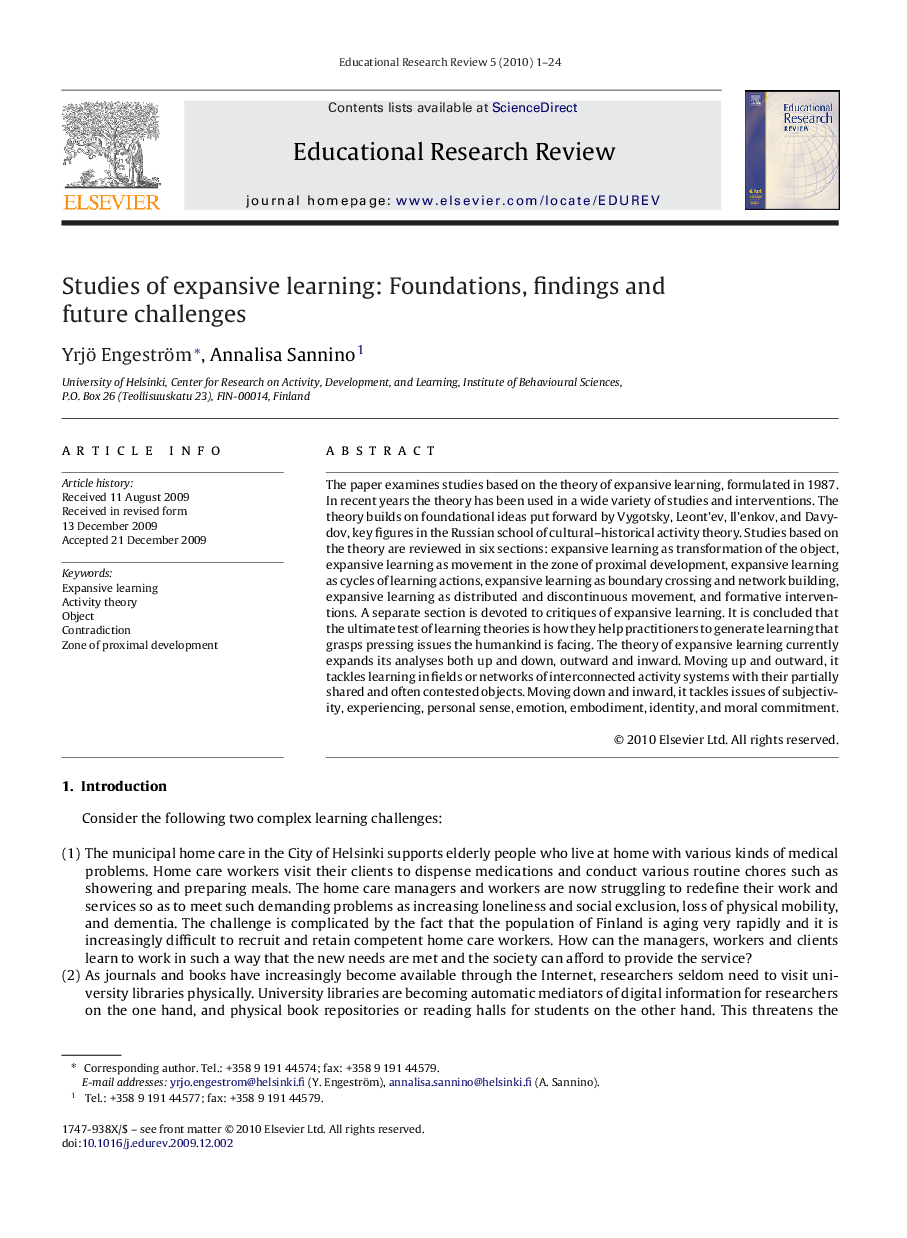| Article ID | Journal | Published Year | Pages | File Type |
|---|---|---|---|---|
| 355228 | Educational Research Review | 2010 | 24 Pages |
The paper examines studies based on the theory of expansive learning, formulated in 1987. In recent years the theory has been used in a wide variety of studies and interventions. The theory builds on foundational ideas put forward by Vygotsky, Leont’ev, Il’enkov, and Davydov, key figures in the Russian school of cultural–historical activity theory. Studies based on the theory are reviewed in six sections: expansive learning as transformation of the object, expansive learning as movement in the zone of proximal development, expansive learning as cycles of learning actions, expansive learning as boundary crossing and network building, expansive learning as distributed and discontinuous movement, and formative interventions. A separate section is devoted to critiques of expansive learning. It is concluded that the ultimate test of learning theories is how they help practitioners to generate learning that grasps pressing issues the humankind is facing. The theory of expansive learning currently expands its analyses both up and down, outward and inward. Moving up and outward, it tackles learning in fields or networks of interconnected activity systems with their partially shared and often contested objects. Moving down and inward, it tackles issues of subjectivity, experiencing, personal sense, emotion, embodiment, identity, and moral commitment.
